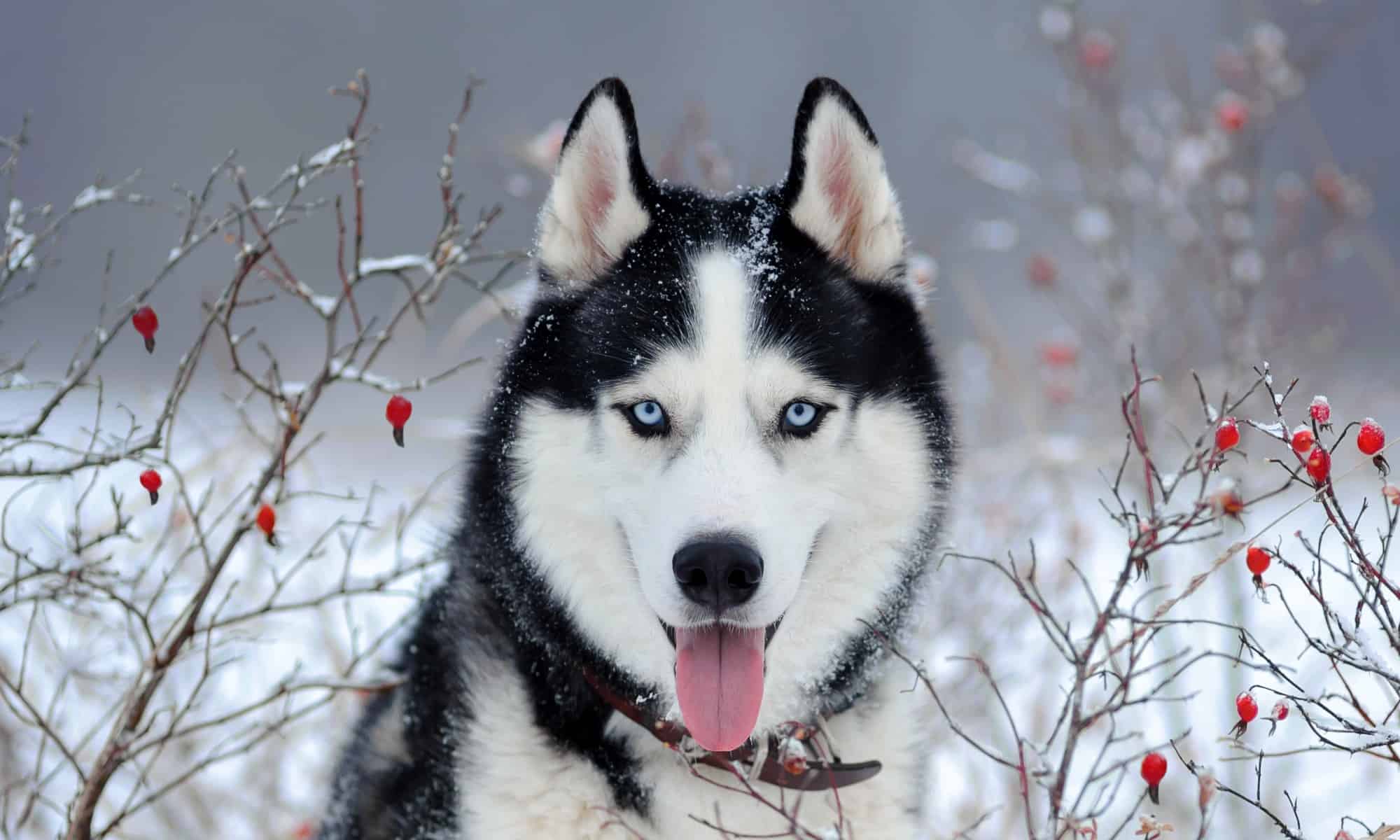At first glance, German shepherds and Siberian huskies may appear related, especially when they have similar colorations, but only share a few similarities. Learn more about each breed and discover what their key differences are!
German Shepherd vs. Husky: A Comparison
| German Shepherd | Siberian Husky | |
|---|---|---|
| Height | Male: 24 – 26 inches Female: 22 – 24 inches | Male: 21 – 23.5 inches Female: 20 – 22 inches |
| Weight | Male: 65 – 90 pounds Female: 50 – 70 pounds | Male: 45 – 60 pounds Female: 35 – 50 pounds |
| Coat Type | Short, medium, or long with an undercoat or long without an undercoat | Double coat with a dense undercoat and long topcoat |
| Colors | Black, sable, gray, white, black and tan, black and silver, red and black | Gray and white, red and white, black and white, sable and white, white, black, black and tan, silver-gray, and gray |
| Temperament | Guarding behavior, suspicion of strangers. Easy to train, intelligent, and loving with family | Intelligent and generally friendly, vocal, high-energy, and stubborn |
| Social Needs | Need time spent with family to deepen bonds; it takes time to warm up to strangers. | Require firm yet gentle training early on and require human company to thrive. Naturally friendly, even with children |
| Life Expectancy | 7 – 10 years | 12 to 14 years old |
| Health Problems | Arthritis, hip dysplasia, bloat | Cataracts, hip dysplasia, hypothyroidism |
Key Differences Between German Shepherd and Husky
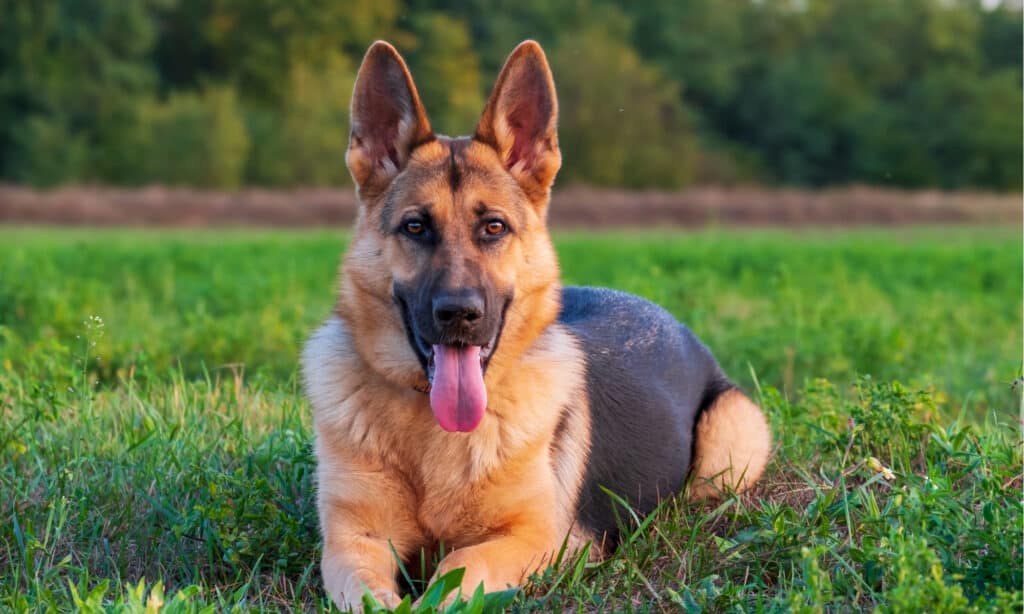
German Shepherds and
Siberian
Huskies have some key differences when compared.
©Barat Roland/Shutterstock.com
Although German shepherds and Siberian huskies achieve a similar height, German shepherds are stockier, weighing between five and 30 pounds more than their husky counterparts. German shepherds have a variety of different coats, ranging from short with an undercoat to long without an undercoat, whereas a husky’s coat is more straightforward with a dense undercoat and long topcoat.
Their colorations vary and may be similar, but their personalities are distinct. German shepherds are friendly, loving, loyal, and guarding with their core family. Huskies are friendly to all, with high energy and a lot more to say, as they communicate loudly with yelps, whining, and barking. Although a German shepherd may initially appear aloof and distrustful, a husky may waltz in like it’s ready to mingle.
Appearance
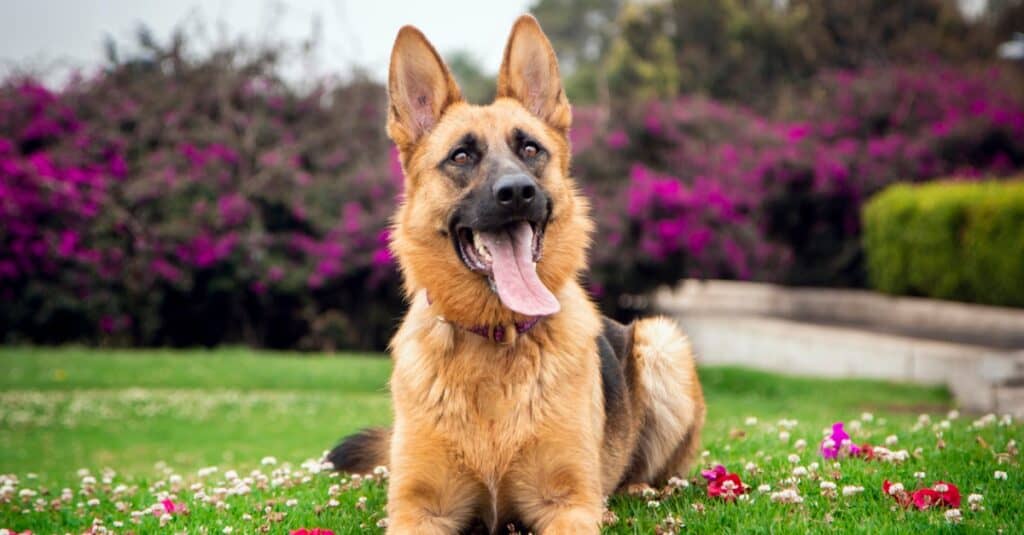
The German shepherd stands about two inches taller on average when compared to the Siberian husky.
©iStock.com/VictorRicoFoto
German Shepherd vs. Husky: Height
Both males and females of each breed reach similar heights, with the German shepherd standing about two inches taller on average. The German shepherd has a smooth and elegant outline as it engages its easy trots. They can certainly increase their speed if they’re trying to get somewhere. A husky is smaller in comparison but walks in a dignified manner with a graceful gait.
German Shepherd vs. Husky: Weight
Both male and female German shepherds carry more weight on their bodies than huskies. German shepherds have muscular builds, which is why they’re recognized as great workers. Huskies are medium-sized with less muscle and are more known for putting their strength to use in packs, able to withstand freezing temperatures as they pull light loads.
German Shepherd vs. Husky: Coat Type
German shepherds have a medium double coat and shed quite a bit. They require regular monthly grooming. Huskies are the same, with a double coat and frequent shedding. They also require regular grooming to keep their medium coats healthy.
German Shepherd vs. Husky: Colors
German shepherds and huskies may share similar coat colors, but German shepherds have more black colorations. Huskies have more white included in their usual colors.
Characteristics
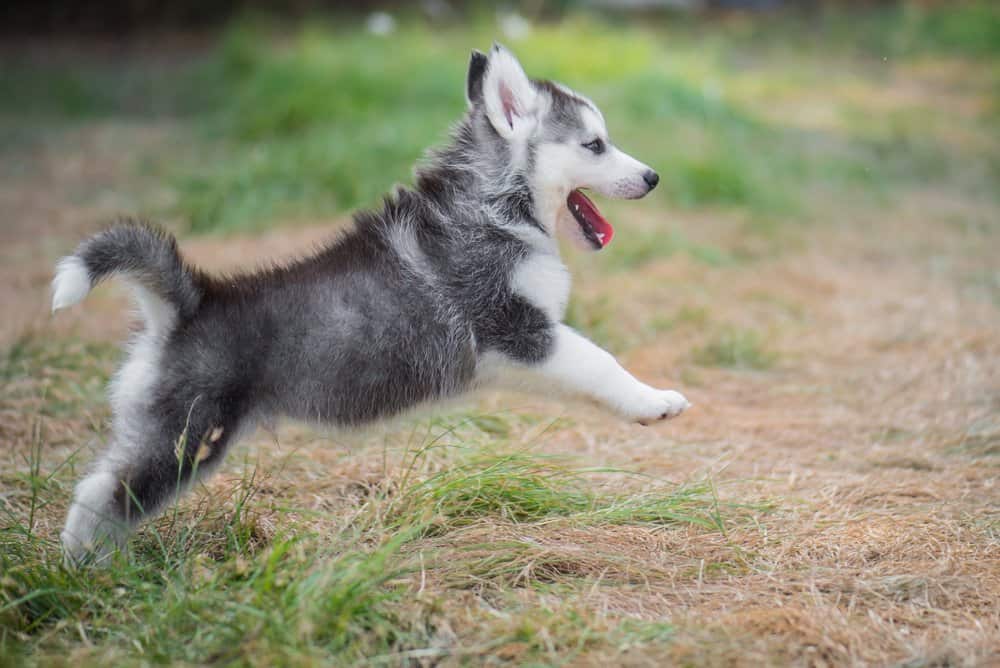
The Siberian husky is full of personality and is high-energy.
©ANURAK PONGPATIMET/Shutterstock.com
German Shepherd vs. Husky: Temperament
German shepherds are admired for their refined appearance and their willingness to get to work. They display high intelligence and follow through with any assigned tasks with both courage and confidence. Huskies are incredibly friendly and high-energy, full of personality. They appear quite mischievous and move with great agility, almost as if weightless.
German Shepherd vs. Husky: Social Needs
Aside from presenting well as working and guarding dogs, German shepherds are also fiercely loyal and affectionate with their humans. Huskies get along well with other dogs and enjoy plenty of quality time with their loved ones as well. They’re not guarding dogs by any means, as they’re more excited to get to know strangers than to be wary of them.
Health Factors
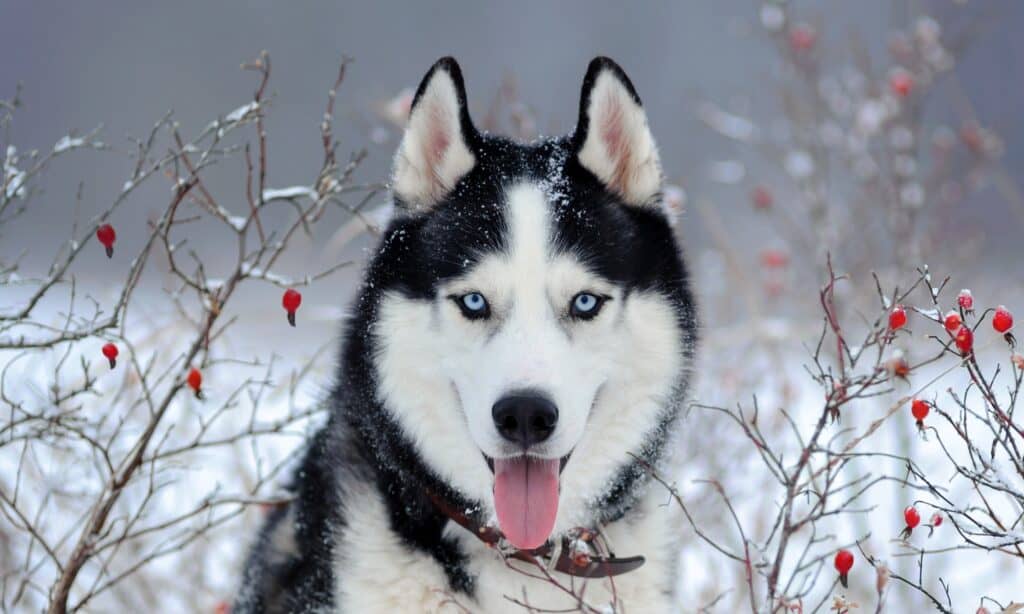
Siberian huskies have longer lifespans than German shepherds.
©iStock.com/format35
German Shepherd vs. Husky: Life Expectancy
A German shepherd’s life expectancy is considerably shorter than a husky’s lifespan. These dogs live between seven to 10 years, whereas huskies typically live between 12 and 14 years.
German Shepherd vs. Husky: Health Problems
Unfortunately, German shepherds are likely to develop several health problems without careful breeding. These may include hip dysplasia, arthritis, and bloat due to their sizes. For those interested in a German shepherd, it’s important to consider veterinary costs as your pet ages.
Huskies are also prone to health issues but different kinds. They live longer on average but face some issues along the way. Perhaps the most common health condition a husky faces is cataracts, an eye disease. Several other eye conditions are a possibility, which is why they require consistent veterinary care, especially during their first year.
Wrapping Up German Shepherd vs. Husky
Whereas German shepherds are cherished for their protective, hard-working, and loyal personalities, huskies are appreciated for their friendliness, high energy, and mischievousness.
Ready to discover the top 10 cutest dog breeds in the entire world?
How about the fastest dogs, the largest dogs and those that are -- quite frankly -- just the kindest dogs on the planet? Each day, AZ Animals sends out lists just like this to our thousands of email subscribers. And the best part? It's FREE. Join today by entering your email below.
Thank you for reading! Have some feedback for us? Contact the AZ Animals editorial team.

